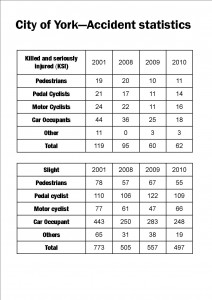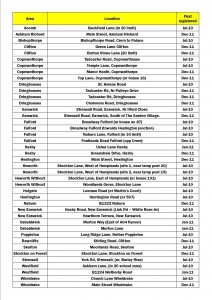Of course the writing was on the wall for this Labour initiative as soon as it was revealed that one of their former Councillors was to chair the “Fairness Commission”. Ruth Redfern is a former Labour MPs aide and most recently was employed by the Labour appointed QUANGO Yorkshire Forward.
Not surprising therefore that the “Commissions” interim report is so predictable and biased.
It may not be quite as bad as the “Beautiful City” report of 2010 which relied almost entirely on anecdotal comment from the usual advocates of bus stations, boat building on the Ouse and river taxis.
But it does fall into the trap of regurgitating the same stats that Councillors have struggled with for over a decade.
York is a relatively wealthy City but some of its residents are less well off than others. That is a fact, although not a particularly surprising one.
So the last council took action.
It maintained and increased the amount of investment that was made in care for the elderly and people with disabilities.
This involved an increase in expenditure in every year since 2003 – without exception.
Innovative projects like the one in Kingsway sought to address those issues faced by communities that were identified by (it has to be said) fairly crude national indicators of “deprivation”.
Deprivation in this case was effectively any neighbourhood (IMO) which had a large number of elderly people dependant on the state pension. The more success that the Council had in ensuring that people received the benefits that they were entitled to, the worse was the “deprivation” score.
But not to worry, there was an issue to be addressed and progress was made.
So now the “Fairness Commission” tells us that in order to focus more money on inequality issues, basic services such as highways maintenance should be cut back while the ward committee improvements budget should be centrally allocated (and to fewer parts of the City).
Not content with this they suggest a 6% increase in Council Tax levels and this at a time when central government is offering the City £1.8 million to freeze tax levels for another year.
That could make a lot of difference to large numbers of people in York who face genuine hardship as a result of higher energy prices and – in some cases – lower real terms income levels.
In the longer term, they are looking to eliminate the subsidy paid to the Theatre Royal and Visit York – the tourism body that helps to sustain 10,000 jobs in the City.
Some of the proposals would require national legislation – they want, for example, to introduce a “tourist tax”.
Some are bizarre – they advocate that the Council should pay staff a “living wage”. Since when were council employees amongst the poorest in society? All benefit from the minimum wage legislation anyway.
They want a “youth card” which would attract retailer discounts ( yet it is already available with YoZone card)
There are recommendations in the report that few would disagree with.
Some, although not original thinking by any means, could attract cross party support. They include proposals to:
• Put benefit advisors where they are most easily accessible to users
• Continue and expand work to reduce the living costs/bills of those in greatest need (e.g. through energy efficiency measures and tackling fuel poverty).
• Ensure economic development strategy and activity focuses on the quality and accessibility as well as the quantity of jobs, and on inclusion as well as growth.
• Deliver a programme of action that tackles barriers to work (e.g. child care).
• Encourage the creation of „green jobs‟ in sustainable industries (already started by the last Council).
• Make training and employment opportunities for young people a priority and radically expand the number of apprenticeships on offer (an initiative announced by the Coalition government last week).
• Work together with and support the voluntary sector more closely and extensively.
But a document that pretends to “help” in a budget setting process and which does not include a single figure indicating the cost of the alternative plan is one that is at best a distraction, or at worst counter-productive to addressing fundamental issues about how public services can be sustained in the future.
The Commission admits to spending over £18,000 directly on coming to their conclusions.



